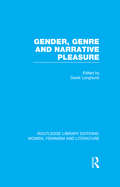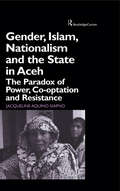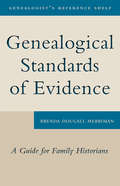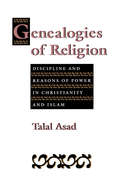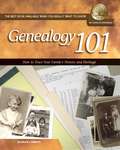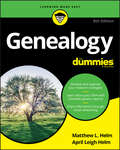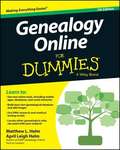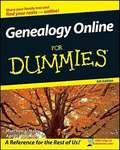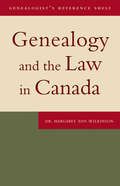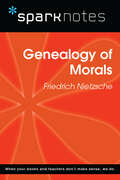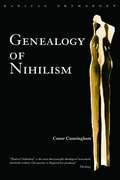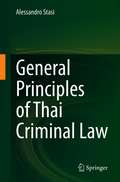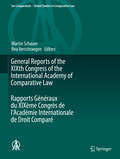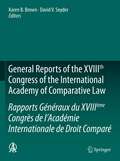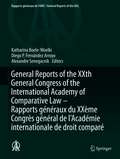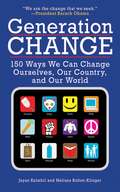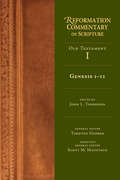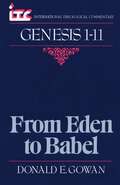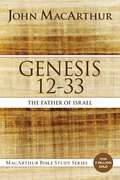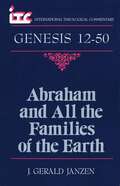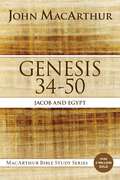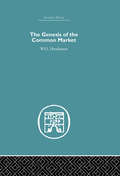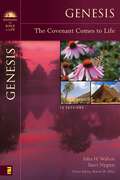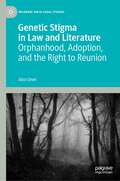- Table View
- List View
Gender, Genre & Narrative Pleasure (Routledge Library Editions: Women, Feminism and Literature #Vol. 1)
by Derek LonghurstRecent years have witnessed important new initiatives in the study of popular fictional modes of writing. At one time the field could have been described with reasonable accuracy by two traditions: one that analyzed the production and distribution of popular fiction as commodities; and one whose proponents regarded popular fiction as the negative which offered definition to the exposure of the positive - the ‘great’ canonic literary tradition. Generally, then, popular fictions were to be ‘evaluated’ according to the institutionalized norms which had been established as common sense practice around literary studies. The decade of the 1970s, however ushered in a bewildering range of theoretical debates - a crucial gain was establishment of interdisciplinary courses in communication, cultural and media studies, providing a network of contexts within which serious analysis could evolve and progress. Responding to a fundamental challenge from feminism, a primary objective of this book is to propose that all narrative and its reading are intrinsically inflected by sexual politics. Various approaches represented here demonstrate problems of confronting the gendered pleasures of reading. Questions about self, sexuality and identity within specific historical formations are raised. The objective is to frame, describe and unearth the notion of ‘men as readers’ as a project rather than as the usual, unquestioned normative procedure. Drawing eclectically upon Marxist, psychoanalytic and discourse theory, the essays set out readings of popular texts and genres – the Western, the sentimental novel, detective and crime fiction, political thrillers and horror and science fiction – in the interest of provoking other readers to see the critical study of popular fiction as unthinkable without gender as a central concern.
Gender, Islam, Nationalism and the State in Aceh: The Paradox of Power, Co-optation and Resistance
by Jaqueline Aquino SiapnoThis book sets out to open up the space for interpretation of history and politics in Aceh which is now in a state of armed rebellion against the Indonesian government. It lays out a groundwork for analysing how female agency is constituted in Aceh, in a complex interplay of indigenous matrifocality, Islamic belief and practices, state terror, and political violence. Analysts of the current conflict in Aceh have tended to focus on present events. Siapno provides a historical analysis of power, co-optation, and resistance in Aceh and links it to broader comparative studies of gender, Islam, and the state in Muslim communities throughout the world.
Genealogical Standards of Evidence: A Guide for Family Historians
by Brenda Dougall MerrimanGenealogical evidence is the information that allows us to identify an individual, an event in his or her life, or the relationship between individuals. In such a process, we often hear or use words such as evidence, proof, or documentation. Brenda Dougall Merriman takes readers through the genealogical process of research and identification, along the way examining how the genealogical community has developed standards of evidence and documentation, what those standards are, and how they can be applied. As a supplement to courses, workshops, and seminars, this book provides both an in-depth and inexpensive reference, perfect for compiling and checking research notes.
Genealogies of Religion: Discipline and Reasons of Power in Christianity and Islam
by Talal AsadIn Geneologies of Religion, Talal Asad explores how religion as a historical category emerged in the West and has come to be applied as a universal concept. The idea that religion has undergone a radical change since the Christian Reformation—from totalitarian and socially repressive to private and relatively benign—is a familiar part of the story of secularization. It is often invokved to explain and justify the liberal politics and world view of modernity. And it leads to the view that "politicized religions" threaten both reason and liberty. Asad's essays explore and question all these assumptions. He argues that "religion" is a construction of European modernity, a construction that authorizes—for Westerners and non-Westerners alike—particular forms of "history making."
Genealogy 101
by Barbara RenickA recent Maritz Poll reported that 60% of Americans are interested in their family history. And with good reason. Through genealogy, you can go back into history to meet people who have had more influence on your life than any others -- your ancestors. And the better you get to know your ancestors, the better you will get to know yourself: the who's and what's and why's of you. Barbara Renick, a nationally-known lecturer on genealogy, tells the uninitiated researcher the steps needed to find out who their ancestors really were, and brings together for even the more experienced genealogical researchers the important principles and practices. She covers such topics as the importance of staying organized and how to go about it; where and how to look for information in libraries, historical societies, and on the internet; recognizing that just because something is in print doesn't mean it's right; and how to prepare to visit the home where your ancestors lived. Genealogy 101 is the first book to read when you want to discover who your ancestors were, where they lived, and what they did.
Genealogy For Dummies
by Matthew L. Helm April Leigh HelmThe fun way to research your family history Genealogy For Dummies, 8th Edition covers everything you need to know about starting a genealogical research project—including where and how to find information, how to communicate with other online genealogists, how to leverage social networking sites and apps, how to add digital images to your family tree, and how to build your own site for sharing information. It also explains the use of compiled genealogies, U.S. Census information, and public access catalogs. Brand new to this edition is content on how to conduct genealogical research on the road, and on how to take this research and integrate it into the data found at home. It also contains new information on DNA research and testing, new geocoding applications to record geographic data into a genealogical database, and other new technologies. The book covers which apps are worth your money, and how to get the most out of them. Use the latest tools to research family history Create your own site to showcase your family tree, digital images, and compiled genealogies Get access to free versions of Legacy Family Tree and Personal Ancestral Files Utilize both online and offline research techniques and tools Follow the clues to uncover your family's legacy—and have fun along the way!
Genealogy Online For Dummies
by Matthew L. Helm April Leigh HelmResearch your family history using the latest online tools and appsGenealogy Online For Dummies, 7th Edition is the perfect book to help you conduct genealogical research. Updated to cover the latest online tools, this new edition shows you how to leverage social networks and the rapidly increasing number of mobile apps to locate family members and trace their histories. You?ll discover how to start your investigation, develop a research plan of action, identify sites and resources that will be of the most use to you, get information from government records, preserve electronic materials, and share your findings with the rest of the family.Shows you how to conduct research into family history using the latest online tools, mobile apps, and other resourcesExplains how to use online and offline research techniques and tools for genealogical research, find and share information with other genealogists, and create your own site to showcase your family tree, digital images, and compiled genealogiesIncludes access to free versions of RootsMagic Essentials and Legacy Family Tree Standard Edition as well as information on free websites for storing your genealogical informationCovers DNA research and testing, new geocoding applications, U.S. Census information available online, international records, public access catalogs, and moreGenealogy Online For Dummies, 7th Edition helps you follow the clues to uncover your family?s legacy ? the fun and easy way.
Genealogy Online For Dummies, 6th Edition
by Matthew L. Helm April Leigh HelmResearching your genealogy online can be a daunting undertaking-but it doesn't have to be. Genealogy Online For Dummies, 6th Edition takes you through the basic steps for researching and tracing your family's lineage in a clear, easy-to-understand manner. Plus, this newest edition offers the latest information on leveraging the potential of social networking sites in order to locate extended family members and uncover additional family history. You'll discover how to start your investigation, build a Web site for sharing your finds, identify sites that will be of the most use to you, get information from government records, preserve electronic materials, and more. Serves as a helpful starting point for beginning your investigation into your family's history Walks you through developing a plan for your research, using online and offline research techniques, and researching ethnic ancestry through international records Details how to create Web sites where family members can make contact or you can share your findings Looks at how to use social networking sites as a new portal for locating extended family members and acquiring additional family history Explains how to access domestic records for births, deaths, immigration, and more on both local and state levels Companion Web site features a vast collection of genealogical software tools and resources Genealogy Online For Dummies, 6th Edition helps you branch out and achieve your genealogical goal!
Genealogy and the Law in Canada
by Dr Margaret Ann WilkinsonDigital records and broad access to the Internet have made it easier for genealogists to gather relevant information from distant sources and to share the information they have gathered. The law, however, remains tied to particular geographic locations. This book discusses how specific laws – access to information, personal data protection, libel, copyright, and regulation of cemeteries – apply to anyone involved in genealogical research in Canada.
Genealogy of Morals (SparkNotes Philosophy Guide)
by SparkNotesGenealogy of Morals (SparkNotes Philosophy Guide) Making the reading experience fun! SparkNotes Philosophy Guides are one-stop guides to the great works of philosophy–masterpieces that stand at the foundations of Western thought. Inside each Philosophy Guide you&’ll find insightful overviews of great philosophical works of the Western world.
Genealogy of Nihilism (Routledge Radical Orthodoxy)
by Conor CunninghamThis text re-reads Western history in the light of nihilistic logic, which pervades two millennia of Western thought. From Parmenides to Alain Badiou, via Plotinus, Avicenna, Duns Scotus, Ockham, Descartes, Spinoza, Kant, Hegel, Heidegger, Sartre, Lacan, Deleuze and Derrida, a genealogy of nothingness can be witnessed in development, with devastating consequences for the way we live.
General Principles of Thai Criminal Law
by Alessandro StasiThis book is centered around the major issues relating to criminal law in Thailand and aims to offer a detailed and systematic overview of the Thai criminal justice system. It is designed as a traditional textbook of criminal law which provides a succinct focused coverage of all the relevant aspects of laws, judgments, and legal reforms in a concise and readable form. Although all topics have been previously treated in the Thai language, this is the first and most comprehensive work in the English language about Thai criminal law. The book covers not only the legal system, starting from the Penal Code of 1908 and emphasizing the substantial changes that have been introduced in the past decades, but also the deep influence of doctrine and case law. It is built up in several layers, starting from the general rule, to gradually examine the more specific ones. The book begins with the elementary legal concepts to be learned by the reader, by defining the fundamental principles underlying the Thai criminal system and outlining its objectives. It then extensively describes the main offences under the Thai Penal Code and classifies those breaches of law which are crimes from those which are merely illegal without being criminal.
General Reports of the XIXth Congress of the International Academy of Comparative Law Rapports Généraux du XIXème Congrès de l'Académie Internationale de Droit Comparé
by Martin Schauer Bea VerschraegenThis book deals with convergences of legal doctrine despite jurisdictional, cultural, and political barriers, and of divergences due to such barriers, examining topics that are of vital importance to contemporary legal scholars. Written by leading scholars from more than twenty countries, its thirty-two chapters present a comparative analysis of cutting-edge legal topics of the 21st century. While each of the countries covered stands alone as a sovereign state, in a technologically advanced world their disparate systems nonetheless show comparable strategies in dealing with complex legal issues. The book is a critical addition to the library of any scholar hoping to keep abreast of the major trends in contemporary law. It covers a vast area of topics that are dealt with from a comparative point of view and represents the current state of law in each area.
General Reports of the XVIIIth Congress of the International Academy of Comparative Law/Rapports Généraux du XVIIIème Congrès de l’Académie Internationale de Droit Comparé
by Karen B. Brown David V. SnyderThis title presents twenty-nine topics, prepared by leading scholars in more than 20 countries, providing a comparative analysis of cutting-edge legal topics of the 21st century. Considering topics of vital moment to contemporary legal scholars, the title includes pieces on Surrogate Motherhood, The Balance of Copyright in Comparative Perspective, International Law in Domestic Systems, Constitutional Courts as "Positive Legislators," Same-sex Marriage, Climate Change and the Law, The Regulation of Private Equity, Hedge Funds, and State Funds, and Regulation of Corporate Tax Evasion. Each chapter surveys legal developments in the U.S. and Canada, Europe, Asia, Latin and South America, Africa, and the Middle East in a format that permits the reader easy access to similarities and differences in the approaches of the selected national regimes. This comprehensive volume tells the story of parallel trends in the evolution of legal doctrine despite jurisdictional, cultural, and political barriers. While each of the covered countries stands alone as a sovereign, in a technologically advanced world their disparate systems nonetheless have converged to adopt comparable strategies in dealing with complex legal issues. The volume is a critical addition to the library of any scholar hoping to keep abreast of the major trends in contemporary law.
General Reports of the XXth General Congress of the International Academy of Comparative Law - Rapports généraux du XXème Congrès général de l'Académie internationale de droit comparé (Ius Comparatum - Global Studies in Comparative Law #50)
by Diego P. Fernández Arroyo Katharina Boele-Woelki Alexandre SenegacnikThis book explores convergences of legal doctrine despite jurisdictional, cultural and political barriers, as well as divergences due to such barriers, examining topics that are of vital importance to contemporary legal scholars. Written by leading experts from all continents, its 26 chapters present a comparative analysis of cutting-edge legal issues of the 21st century. While each of the countries covered stands alone as a sovereign state, in a technologically advanced world their disparate systems nonetheless show comparable strategies in dealing with complex legal issues. Several of the chapters show how, in addition to state normative production and state adjudication, a growing panoply of non-state instruments and non-state adjudication are becoming more and more central to the legal field. This book is a key addition to the library of any scholar wanting to keep abreast of the major trends in contemporary law. Representing the current state of law in a vast range of areas, it covers each topic from a comparative perspective. Cet ouvrage, en examinant des sujets d'une importance vitale pour les juristes contemporains, traite des convergences de la doctrine juridique malgré les barrières juridictionnelles, culturelles et politiques ainsi que des divergences dues à ces barrières. Écrits par d'éminents universitaires de tous les continents, ses 26 chapitres présentent une analyse comparative de sujets juridiques majeurs du 21e siècle. Dans un monde technologiquement avancé, bien que chaque pays analysé dans cet ouvrage demeure autonome en tant qu'État souverain, l’ensemble des systèmes disparates présente néanmoins des stratégies comparables pour traiter des questions juridiques complexes. En outre, plusieurs chapitres montrent comment, en plus de la production normative et de la résolution des différends étatiques, la panoplie croissante de différents types d'instruments non étatiques et de résolution non étatique des différends devient de plus en plus centrale dans la sphère juridique. Cet ouvrage est un ajout essentiel à la bibliothèque de tout universitaire souhaitant se tenir au courant des principales tendances du droit contemporain. Il couvre un vaste domaine de sujets traités d'un point de vue comparatif et représente l'état actuel du droit dans chaque domaine.
General Studies - Ancient India - IAS Competitive Exam
by Ravi VajiramStudy material for IAS competitive exam by Vajiram and Ravi IAS study center LLP.
Generation Change: 150 Ways We Can Change Ourselves, Our Country, and Our World
by Melissa Bolton-Klinger Jayan KalathilOn November 4, 2008, the world entered a new era as Barack Obama was elected 44th president of the United States of America. With this momentous occasion, a new generation of foot soldiers was mobilized, ready to work for and with a man who convinced them that real change was possible. "Yes we can!" became more than an election slogan. It became the mantra of a movement. Generation O is the largest demographic group in the United States. They're armed with tech savvy and fearless optimism and are ready to change the world. Taking inspiration from the millions of young people who supported the Obama campaign, this handbook offers ideas for creating change-in your personal life, in your neighborhood, in our country, and around the world. From suggestions on self-improvement (like learning a language or taking up meditation) to building a grassroots political base to opening electronic dialogue with people around the world, this is a handbook that outlines how the lessons of the 2008 election can be applied to personal goals and community organization. With a fun, exciting design and an optimistic approach sure to attract readers of all ages, Generation Change is a book no American citizen should miss.
Genesis 1-11 (Reformation Commentary on Scripture Series #1)
by John L. ThompsonThe first chapters of Genesis are the bedrock of the Jewish and Christian traditions. In these inaugural pages of the canon, the creation of the world, the fall of the human creature, the promise of redemption and the beginning of salvation history are found. Interwoven in the text are memorable stories of the ancient biblical patriarchs and matriarchs. Throughout the history of commentary, interpreters have lavished attention on the rich passages recounting the six days of creation, the tragic fall of God's creature--from the expulsion of the first parents to Cain's fratricide and the catastrophe of the Flood--as well as the allegorical sign of hope in the ark of Noah. Commentators in the Reformation continued this venerable tradition of detailed focus on these primordial stories, finding themselves and their era deeply connected to the tragedies and promises, the genealogies and marvels of God's providential election and governance. Above all, Reformation-era interpreters found anchor for their teaching, preaching and hope in the promise of Christ running through these first chapters, from creation to the calling of Abraham. While following the precedent of patristic and medieval commentators on Scripture, as well as Rabbinic midrash, the Reformers provide insightful and startling fresh readings of familiar passages, inviting readers to see the ancient text with new eyes. This volume collects the comments of not only the monumental thinkers like Luther, Calvin and Melancthon, but also many important figures of the time who are lesser-known today. Here we find rich fare from Johannes Brenz, Wolfgang Capito, Hans Denck, Wolfgang Musculus, Johannes Oecolampadius and Peter Martyr Vermigli. Readers will encounter comments from a wide array of perspectives, from the magisterial Reformers to radical Protestants like Balthasar Hubmaier, Menno Simons, Pilgram Marpeck and Dirk Philips, as well as some Catholic thinkers, such as Desiderius Erasmus and Cardinal Cajetan. Important contributions from female voices, like Katharina Schütz Zell and Anna Maria van Schurman are included also. The wealth of Reformation interpretation is brought together here for study and reflection, much appearing in English for the first time.
Genesis 1-11: From Eden to Babel
by Donald E. GowanGenesis 1- 11 preserves a unique view of Bible history, tracing the move from Eden, an idyllic world fully in accord with the will of God, to Babel, a fallen world desperately in need of salvation. In this commentary, Donald E. Gowan demonstrates acute sensitivity and insight in focusing on the theological import of these familiar but often puzzling accounts, showing them to be even more crucial for what they say to us about ourselves than for the information they record about individuals and events so very long ago. Addressing such themes as the existence of evil and the threat of chaos, human power and violence, tension between the sexes and the breakdown of the family, he remains ever conscious of the gospel as set forth in Genesis.
Genesis 12 to 33: The Father of Israel (MacArthur Bible Studies)
by John F. MacArthurAbraham is known as the "father of Israel" because God appeared to him and promised that his descendants would become a great nation. Yet Abraham is much more than the patriarch of a select group of ancient people. Through Abraham's descendants, God's own Son, Jesus, was born. It's through Abraham that God blessed all people. In this study, pastor John MacArthur will guide you through an in-depth look at the historical period beginning with Abraham's call from God, continuing through his relocation in the land of Canaan, and concluding with the story of his grandsons Jacob and Esau.This study includes close-up examinations of Sarah, Hagar, Ishmael, and Isaac, as well as careful considerations of doctrinal themes such as "Covenant and Obedience" and "Wrestling with God."—ABOUT THE SERIES—The MacArthur Bible Study series is designed to help you study the Word of God with guidance from widely respected pastor and author John MacArthur. Each guide provides intriguing examinations of the whole of Scripture by examining its parts and incorporates:Extensive, but straight-forward commentary on the text.Detailed observations on overriding themes, timelines, history, and context.Word and phrase studies to help you unlock the broader meaning and apply it to your life.Probing, interactive questions with plenty of space to write down your response and thoughts.
Genesis 12-50: Abraham and All the Families of the Earth
by J. Gerald JanzenThis is a print on demand book and is therefore non- returnable. J. Gerald Janzen approaches Genesis with the "conviction that the final form of the text is greater than the mere sum of its sources, and that the theological vision which it presents is greater and more profound — more ripe or mature — than can be gained simply from studies of historical events and social situations out of which the text arose." This commentary on Genesis constitutes a profound theological work.
Genesis 34 to 50: Jacob and Egypt (MacArthur Bible Studies)
by John F. MacArthurNearly half of the book of Genesis is devoted to the lives of Jacob and his twelve sons, who were important figures in the history of Israel and in God's plan for redemption. The account of their lives takes the term "dysfunctional family" to a new level, but God used this flawed clan as a beautiful canvas to portray His providence, judgment, and mercy. In this study, pastor John MacArthur will guide you through an in-depth look at the historical period beginning with Jacob's first encounter with Rachel, continuing through their son Joseph's captivity as an Egyptian slave, and concluding with the dramatic rescue of Jacob's family.This study includes close-up examinations of Dinah (Jacob's daughter), Judah, Tamar, and Pharaoh's chief butler, as well as careful considerations of doctrinal themes such as "The Sovereignty of God" and "Finishing in Faith."—ABOUT THE SERIES—The MacArthur Bible Study series is designed to help you study the Word of God with guidance from widely respected pastor and author John MacArthur. Each guide provides intriguing examinations of the whole of Scripture by examining its parts and incorporates:Extensive, but straight-forward commentary on the text.Detailed observations on overriding themes, timelines, history, and context.Word and phrase studies to help you unlock the broader meaning and apply it to your life.Probing, interactive questions with plenty of space to write down your response and thoughts.
Genesis of the Common Market
by W.O. HendersonFirst Published in 2005. Routledge is an imprint of Taylor & Francis, an informa company.
Genesis: The Covenant Comes to Life (Bringing the Bible to Life)
by John H. Walton Janet NygrenA series of Bible study guides following the format and content of the NIV Application Commentaries Series. Each study looks at the original meaning, bridging contexts, and contemporary significance of the text, and offers small group participants a better understanding and relevant application of the biblical material to their daily lives.
Genetic Stigma in Law and Literature: Orphanhood, Adoption, and the Right to Reunion (Palgrave Socio-Legal Studies)
by Alice DiverThis book critically analyses the way in which traditional sociocultural and legal biases might be perpetuated against those with unknown – or unknowable – genetic ancestries. It looks to law and works of literature across differing eras and genres focussing upon such concepts as inherited stigma, illegitimacy, orphanisation, adoption, othering, reunion, and the ‘right’ to access truths that relate to one’s original identity. Law’s role in such matters is often limited (or usurped) by custom, practice, or lingering superstitious beliefs; the importance of oral and written testimony is therefore highlighted. Characters include abandoned or orphaned figures from folk and fairy tales, Romantic and Victorian monsters and heroes, Dickensian waifs, Edwardian rescue orphans, and dystopia-set ‘rebels.‘ Their insights and experiences are mirrored in various present day scenarios that speak to familial human rights abuses, not least forced adoptions and bars on accessing original information. This cross-disciplinary book drawing on Law, Literature, Sociology, Critical Adoption Studies should be of interest to those interested in and those who have been affected in some way by adoption, origin deprivation, or reunion.
